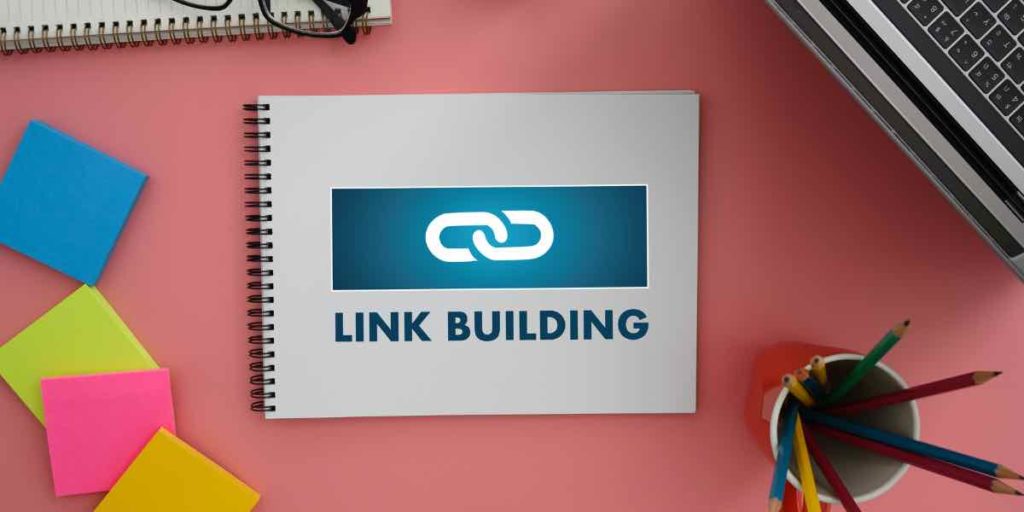Local link building has emerged as a pivotal strategy in enhancing digital visibility, especially for businesses aiming to make a mark in their localities. But what exactly does it entail, and why does it hold such significance in contemporary SEO practices? Let’s delve into the multifaceted world of local link building, exploring its importance, cost considerations, and practical strategies to navigate through its complexities.
Why is Local Link Building Important?
Imagine your website is like a shop in a big online city. Now, local link building is like having other small shops (websites) in your neighborhood (local area online) pointing or directing people towards your shop. So, when a local website links to your website, it’s like saying, “Hey, this shop (your website) is worth checking out!” to all their visitors.
Why It Matters
When your website gets these “directions” or links from other websites, search engines like Google see this as a thumbs-up for your website. It’s like your neighbors vouching for you, and this makes Google think, “Oh, this website must be quite good!”
So, when people in your area search for something you offer, Google is more likely to show your website in the search results, making it easier for local folks to find your online “shop.”
Examples
Let’s say you have a coffee shop, and a local blogger who writes about the best coffee places links to your website. Now, their readers might click on that link and visit your website, and perhaps even your physical shop, after reading about you on the blog. This link not only brings visitors from the blog but also tells Google that your coffee shop website is relevant and valuable to people searching for good coffee places in your area.
Local link building helps your website become more known and visible to people in your local area, especially when they search online for things you offer. It’s like getting a local stamp of approval that search engines and people notice.
How Much Should I Pay for Link Building?
Link building is a key part of online marketing, helping your website become more visible and potentially bringing more customers. But how much should you spend on it? Understanding the return on investment (ROI) and how link building affects your online presence is crucial. It’s not just about getting more people to your website but getting the right people – those who are interested in what you offer.
Cost Variables
The cost of link building can depend on various things. For example, the type of business you have, the competition in your industry, and what you want to achieve with your link-building efforts can all affect the cost. Here are some general ranges based on online sources:
- Lower Range: $100 – $500 per link (Marketing Lad)
- Mid-Range: $361.44 average per link to $5,000 for projects (LinkBuilder.io, Linkflow.ai)
- High-End Range: Monthly services from $2,999 to $20,000 (Stellar SEO)
Budgeting Tips
Planning your budget for link building involves being mindful of your overall marketing budget and ensuring you’re spending an amount that is likely to bring a positive return. Here are some tips:
- Set Clear Goals: Know what you want to achieve with link building, such as increasing traffic to certain pages or improving overall website authority.
- Quality Over Quantity: Sometimes, a few high-quality links can be more beneficial than many low-quality ones.
Track Your Spending: Keep a close eye on your spending and the results of your link-building efforts to understand what’s working and what isn’t.
Additional Considerations
- Avoid Penalties: Ensure that the methods used by any services you pay for adhere to search engine guidelines to avoid penalties.
- Diverse Strategies: Don’t put all your eggs in one basket. Ensure your link-building strategies are varied to minimize risks and maximize potential gains.
- Continuous Effort: Link building isn’t a one-off task. It requires continuous effort and adjustment to your strategies based on results and changes in the online landscape.
Balancing your budget, ensuring quality, and continuously monitoring your efforts will help ensure that your investment in link building is fruitful. Remember to adjust strategies as needed and to align them with your overall marketing goals.
Google Link Guidelines
The Do’s: Building Authentic Links
- Create Valuable Content: Ensure your website offers high-quality, informative, and engaging content that naturally attracts backlinks.
- Leverage Local Partnerships: Engage with local businesses, organizations, or events and explore opportunities for mutual backlinking.
- Use Social Media: Share your content on various social media platforms to increase visibility and potentially gain more backlinks.
- Guest Posting: Write articles for other websites in your industry and include a link back to your site in a way that provides value to the readers.
- Engage in Communities: Participate in forums and online communities relevant to your industry, sharing your expertise and linking back to your content where it adds value.
The Don’ts: Avoiding Link Spam Traps
- Avoid Buying Links: Purchasing links to improve your SEO is against Google’s guidelines and can result in penalties.
- Steer Clear of Link Exchanges: Engaging in schemes where you exchange links with other sites solely for SEO can be seen as manipulative.
- Beware of Irrelevant Links: Ensure that the links to and from your website are relevant to your industry and content.
- Avoid Over-Optimized Anchor Text: Using excessively keyword-rich anchor text for internal or external links can be flagged as spammy.
- Steer Clear of Low-Quality Directories: Submitting your website to low-quality directories solely for backlinks can harm your SEO.
Striking the Balance in Link Building
Effective link building is a balance between following best practices and avoiding strategies that can harm your website’s reputation and ranking. While it’s essential to actively pursue strategies that will increase your site’s backlinks, it’s equally crucial to ensure that these strategies adhere to ethical guidelines and provide genuine value to your users. Always prioritize quality over quantity, focusing on building links that are relevant, valuable, and organic. This approach not only safeguards your site against potential penalties but also enhances your reputation and trustworthiness among your audience and within your industry. Source Spam policies for Google web search
How To Link Building in SEO: Simple Guide to Link Building
Link building is like making friends online for your website. When other websites link to yours, it’s like they’re saying, “Hey, this place is cool, check it out!” Let’s look at some simple ways to make more online friends for your website.
Get Customer Reviews
- Ask Nicely: After providing a great service or product, kindly ask your happy customers to write a review about their experience online.
- Share the Love: When customers say good things about you, show it off! Put their reviews on your website and share them on your social media to let more people see the positive feedback.
Work with Bloggers
- Find Bloggers: Look for local bloggers or people who are popular on the internet.
- Ask for a Mention: Politely ask them to write about your business and include a link to your website in their content.
Create Shareable Content
- Make Fun Stuff: Create enjoyable or useful content like pictures, videos, or blogs.
- Easy to Share: Ensure your content is easy for people to share on social media or their websites.
Join Online Discussions
- Join Groups: Become a member of online groups or forums related to your business or interests.
- Be Helpful: Share your knowledge, answer questions, and provide useful information to others in the group.
Be Active on Social Media
- Share Your Stuff: Post your content, like pictures or blogs, on social media platforms such as Facebook and Instagram.
- Make it Shareable: Ensure your content is easy to find and simple for people to share with their friends or followers.
Look at Competitor Links
- Investigate LinksCheck out which websites are linking to your competitors. Tools like Ahrefs or SEMrush can help you see where your competitors’ links are coming from.
- Be Appealing: Consider how you can also provide value or be of interest to these websites to gain a link. Using insights from tools like Ahrefs or SEMrush, identify patterns or content types that are successful in earning links and think about how you can implement similar strategies.
Link building is like making friends for your website. Be nice, share interesting things, and make real connections online!
There are other factors that can help you rank high in local SEO. Also, SEO might be time-consuming; consider starting with a free local SEO audit.




